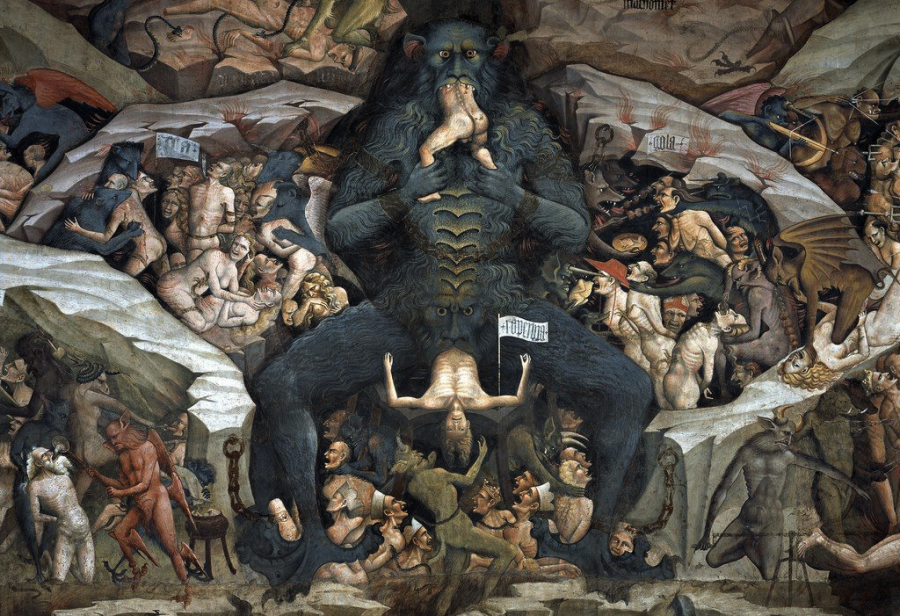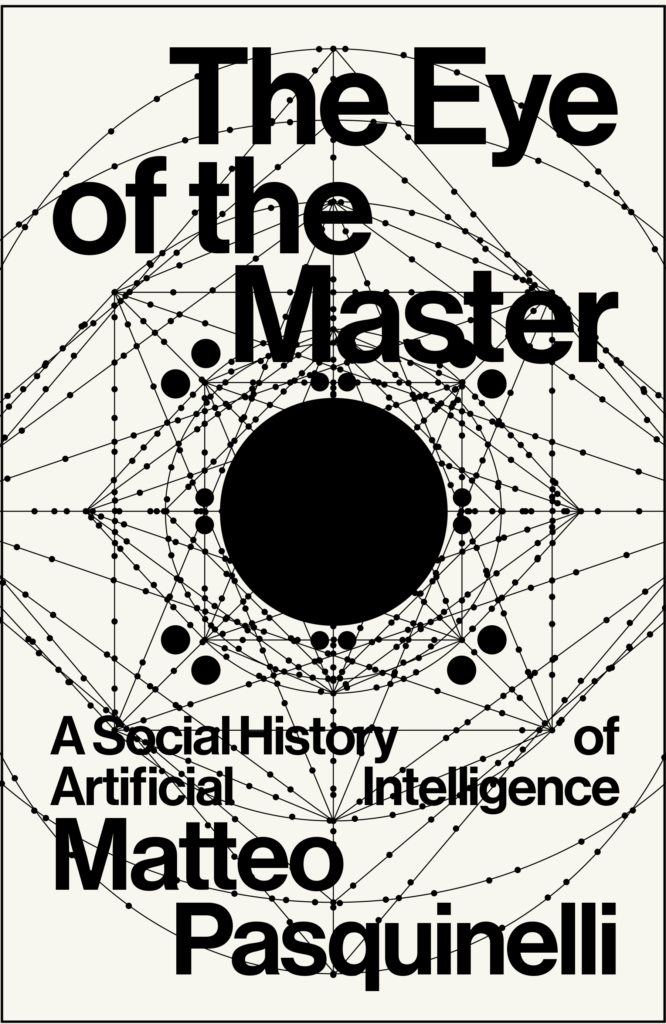Notes on the Manifesto of Urban Cannibalism (2012)
Wietske Maas and Matteo Pasquinelli, DIS magazine, October 2014.
A fresco in the church of San Petronio in Bologna, dated 1410, depicts Satan in a fashion quite characteristic of the imaginary of the Middle Ages. The Devil is a gigantic beast devouring human souls. At the same time he is giving birth to them through a second mouth-vagina between his legs, in a circular damnation and movement of ingestion-defecation-rebirth which reminds of the uncanny symmetry of the bicephalous Roman god Janus.
In fact, this image of Satan absorbs what the church wanted to condemn and politically control: not just the pagan background of Europe, but specifically the rural and aboriginal faith in the circularity of nature and the self-regeneration of the whole countryside (that is the regeneration of the means of production themselves). The idea of the eternal return of life – with no divine intervention, no Genesis and no Apocalypse, but rather an alchemic and gastronomic cycle of digestion and regeneration – had to be excommunicated and personified in the pansexual body of a cannibalistic Satan.
A few centuries later the Brazilian poet Oswald de Andrade revived a similar image of cannibalism and turned it into his Manifesto antropófago — the founding text of Brazilian art modernism and subsequent movements opposing European colonization. Both De Andrade and the carnal imagineries of the Middle Ages are digested by the Manifesto of Urban Cannibalism.
The Manifesto, however, also condenses a multitude of other contemporary intuitions: an instinctive rejection of the new political correctness of urban ecology, the petty bourgeois ideology of urban gardens, the self-imposed siege of sustainable development, peak oil catastrophism and many other current machines of biopolitical control.
The Manifesto, for sure, still breathes a strong and vivid materialism. Yet it refuses predicticable binaries: namely, good horizontalism vs bad verticalism, molecular revolution vs big apparatuses of capture. As Negarestani has pointed out in Cyclonopedia, any form of religion and politics that expresses and promotes horizontality is in fact the easiest to control and exploit by vertical structures of power. Any polytheism of nature will always be an easy prey of the monotheism of Nature.
→ Continue reading The Manifesto of Urban Cannibalism
→ English, Italian, Korean, Polish, Turkish translations [PDF]


